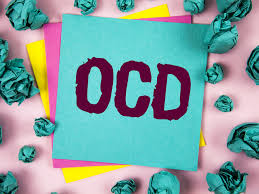There are many different types of OCD online treatments available. Some are more effective than others, and some may even be less expensive. The best way to find the right treatment for you is to consult with a mental health professional who can help you determine which type of treatment will be most effective for your particular case. In this article, we will discuss the resources available for online OCD treatment. and we will also discuss if there are any limitations.
Contents
What Is OCD Online Treatment?
 OCD online treatment is described as a process where people with OCD can receive help and support from a therapist through an online platform. This type of treatment can provide people with the flexibility and convenience that they need in order to work on their OCD symptoms. There are a number of different online platforms that offer OCD online treatment, and each one has its own unique approach to helping people with OCD.
OCD online treatment is described as a process where people with OCD can receive help and support from a therapist through an online platform. This type of treatment can provide people with the flexibility and convenience that they need in order to work on their OCD symptoms. There are a number of different online platforms that offer OCD online treatment, and each one has its own unique approach to helping people with OCD.
The first step to treating OCD is to get a diagnosis. This is easy to do if you have medical insurance or health insurance at work where you can see a mental health professional like a therapist or doctor. OCD is a disorder that can affect all aspects of a person’s life, from daily actions like working and sleeping to more severe symptoms like intrusive thoughts and compulsive behaviors. How can you treat an obsessive-compulsive disorder without medication? A guide to how OCD is diagnosed, treated, and managed online.
If you’re seeking treatment for OCD, it’s important to find a qualified mental health professional who has experience treating the condition. Once you’ve found a therapist you feel comfortable with, you can begin working on developing a treatment plan that works for you. These professionals have the training and experience to help you through the tough times that OCD can cause.
Online Treatments For OCD
There are many online treatments for OCD, but the most popular ones are:-
Psychotherapy
Exposure and Response Prevention (ERP)
This therapy involves gradually exposing patients to their obsessions and compulsions in a safe environment while monitoring their reactions. If the patient experiences anxiety or distress, they are then instructed to avoid the situation or behavior that caused those feelings. By gradually challenging their fears and habits, ERP helps patients overcome OCD. ERP is an effective treatment for OCD; however, there are some concerns about its effectiveness in comparison with CBT. Both CBT and ERP require dedication and perseverance, but they can be very effective in treating OCD.
Cognitive Behavioral Therapy (CBT)
CBT is a type of therapy that helps people learn how to change their thoughts and behaviors. It is often used to treat OCD. CBT typically begins with a diagnosis and a discussion of the symptoms. The therapist will then create a plan for treatment based on the symptoms and the person’s goals. The therapist will also help the person cope with OCD symptoms. The main goal of CBT is to help the person feel better overall. CBT may help reduce obsessions, decrease rituals, and improve overall mental health. Behavior therapy can also be used as part of an intervention or in conjunction with medication to treat obsessive-compulsive disorder (OCD).
Medication
While medication is not a cure for OCD, it can help lessen symptoms and make other treatments more effective. Some common medications used to treat OCD include antidepressants, anti-anxiety medications, and antipsychotics. These should be prescribed by a mental health professional. There are many different types of medications that can be used to treat OCD. Some of the most common include SSRIs, tricyclic antidepressants, and MAOIs. These medications can help to reduce the symptoms of OCD by increasing the levels of serotonin in the brain. This can help to improve symptoms of depression, anxiety, and obsessions that are linked with the disorder.
Limitations Of OCD Online Treatment
 Issues with treating OCD online are numerous. Individuals with OCD often feel a personal connection to their disorder, and often find it challenging to connect with providers or treatments that are not in person. Additionally, many people with OCD find accessing treatment resources online difficult because of the fear of being judged or ridiculed. Additionally, many people have difficulty committing to online treatments because they do not have in-person interactions with their providers.
Issues with treating OCD online are numerous. Individuals with OCD often feel a personal connection to their disorder, and often find it challenging to connect with providers or treatments that are not in person. Additionally, many people with OCD find accessing treatment resources online difficult because of the fear of being judged or ridiculed. Additionally, many people have difficulty committing to online treatments because they do not have in-person interactions with their providers.
Many of these treatments are time-consuming and require a significant amount of dedication. In addition to this, most people with OCD do not have the proper motivation to work on their treatment outside of a clinical environment. This is because they are often too ashamed or embarrassed to access treatment, as well as having difficulty facing triggers that may arise in non-clinical environments.
Another limitation is that online treatment can be expensive. Many people with OCD can’t afford to pay for private therapy sessions. And even if they could, the cost of travel and lodging can make it prohibitive.
Finally, online treatment can be isolating. If you’re not in regular contact with a therapist, it can be easy to feel like you’re the only one dealing with
Low-Cost Support/Self-Help Resources
Following are some of the Online programs & apps to handle OCD independently:
1. Online programs and apps
Online programs and applications may be very helpful tools when therapy is not an option, whether you can’t afford it, you’re waiting to be admitted to a program, or you’re waiting for an appointment with a professional. A large number of these focus on symptom management and include elements of cognitive behavioral therapy. Particularly, the OCD Challenge is a free, online program for controlling OCD symptoms.
2. Self-help books
Much like online programs and apps, self-help books are a great alternative when you are either waiting for professional treatment or are otherwise incapable of accessing professional treatment.
3. Hotlines
In immediate and crisis situations, hotlines are a great place to turn to for support and guidance. Sometimes you just find yourself needing an instant helping hand, and a hotline is a great way of getting that critical support. Some days can be harder than others, and when those days happen you’ll always have a place to call.
4. Support Groups
Whether they are peer-led or professionally run, can be helpful resources when you feel like you need that extra level of understanding. These can be a really personal experience when you can build some crucial ties with other OCD sufferers.
5. Online Communities
Online communities are becoming increasingly popular places to connect with others living with OCD. Similar to support groups, most online communities for OCD are free to use.
these are some of the available resources where you can get the help you require.
Increase Awareness About OCD
 This is an important factor in helping people with OCD. The more we understand the condition, the more likely we are to identify it in others and get them the help they need. Many people with OCD suffer for years before they seek help, partly because they don’t know what’s wrong with them. If more people were aware of the symptoms of OCD, it would be easier for sufferers to get the help they need. There are many effective treatments available, but people with OCD often don’t seek help because they’re embarrassed or ashamed of their condition.
This is an important factor in helping people with OCD. The more we understand the condition, the more likely we are to identify it in others and get them the help they need. Many people with OCD suffer for years before they seek help, partly because they don’t know what’s wrong with them. If more people were aware of the symptoms of OCD, it would be easier for sufferers to get the help they need. There are many effective treatments available, but people with OCD often don’t seek help because they’re embarrassed or ashamed of their condition.
There are a number of ways to increase awareness about OCD:
- Talk about it: The more we talk about OCD, the more normalized it becomes. This can help people feel less alone and more likely to seek treatment.
- Write about it: Sharing your story can be a powerful way to increase your understanding of OCD. By writing about your experiences, you can help others see that they are not alone.
- Educate yourself: Learning about OCD can help you be more understanding and supportive of people who suffer from the condition.
Educate others: By spreading information about OCD, you can help increase understanding and support for those who suffer from it. - Support research: Donating to or participating in OCD research helps to further our understanding of the condition and develop new and improved treatments.
OCD is a complex condition, and there is still much we don’t understand about it. However, increasing awareness is a vital step in helping people with OCD get the treatment they need.
Conclusion
If you think you might have OCD, the first step is to talk to your doctor. You can also find helpful resources and support online. There are many websites that offer information and tips for managing OCD online through treatment. You can also find online support groups to share your experiences with others who understand what you’re going through. With treatment and support, it is possible to manage OCD and live a full and satisfying life.
If you want more information and want help with OCD treatment. You can contact Therapy Mantra for expert guidance we have a team of highly trained and experienced therapists who can provide you with the tools and skills necessary for overcoming OCD. Our sessions are open to everyone across the globe at affordable rates. Contact us today to schedule an online therapy or download our free OCD treatment app on Android or iOS.


